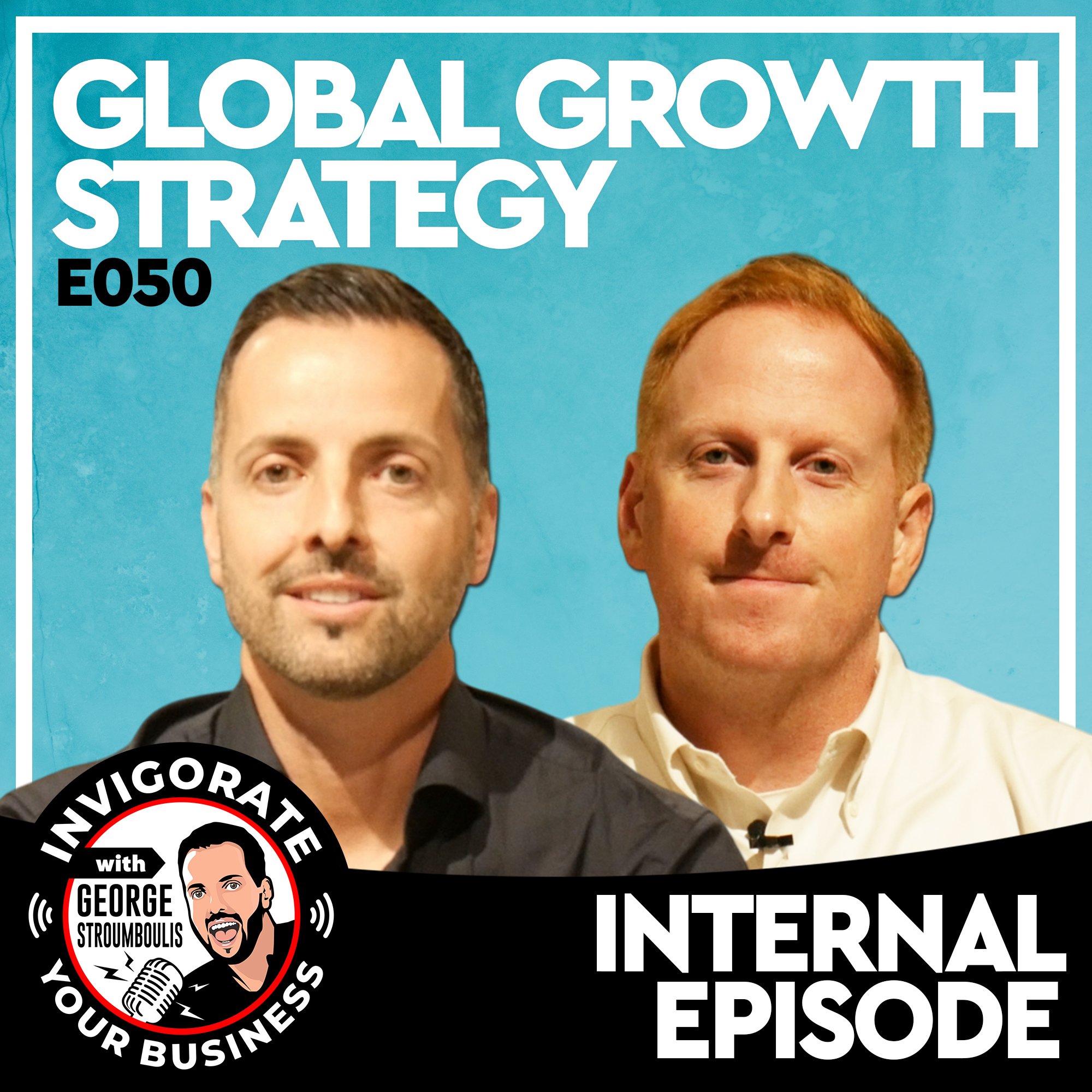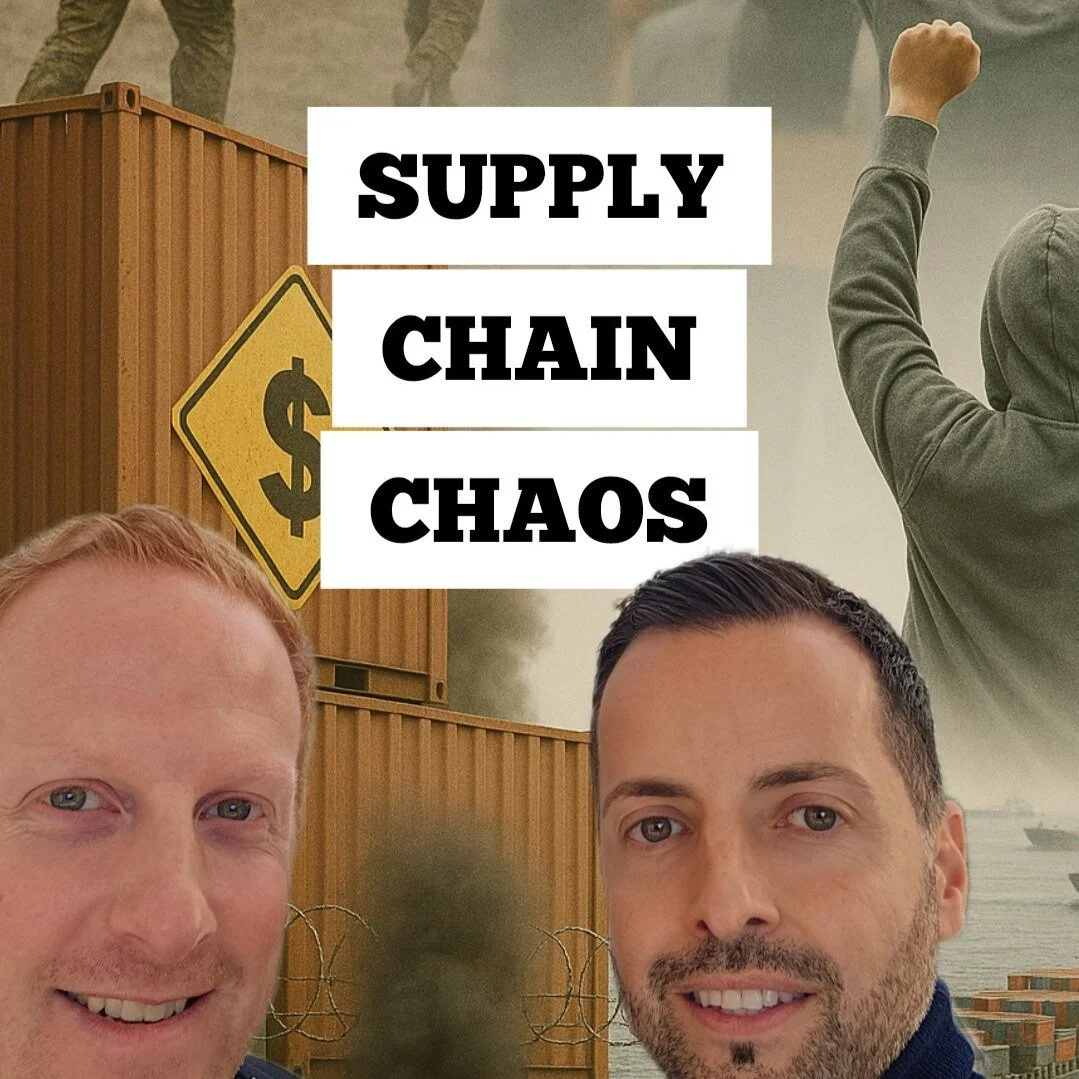NEW WAREHOUSE IN EUROPE TO SUPPORT GLOBAL CLIENTS
New Warehouse in Europe to Support Global Clients
Exciting news for Ideoli Group! We’ve expanded our global operations with the opening of a new warehouse in Athens, Greece. This strategic move allows us to better support our clients across Europe and the Middle East as they continue to grow and expand in these regions.
Recently, I had the pleasure of touring the new facility with my wife and three daughters, overseeing a shipment destined for one of our clients’ new locations in Spain. It was a proud moment, not just for me personally but for Ideoli Group as a whole, as this facility is a significant step in our commitment to providing faster and more reliable service to our global clients.
The Athens warehouse will stock a wide range of our high-quality LED lighting products, ensuring quicker delivery times across Southeast Europe and beyond. By positioning our inventory closer to key markets, we can now ship products more efficiently, meeting the increasing demands of our clients, particularly those expanding their footprints across Europe and the Middle East.
This new warehouse underscores Ideoli's dedication to investing in the regions where our clients operate and further strengthens our ability to offer world-class service and support, no matter where they are located.
Our investment in Athens is not just about logistics—it’s about being a part of the region’s growth story, helping our clients light up new spaces, and staying ahead in the ever-evolving global marketplace. We're excited for what lies ahead as we continue to expand our footprint and capabilities.
“The Athens warehouse will stock a wide range of our high-quality LED lighting products, ensuring quicker delivery times across Southeast Europe and beyond.”
With Dimitra (9), Viviana (6) and Evangelia (3) in Athens, Greece. Always supporting and encouraging.
How Strategic is Athens for a New Warehouse?
Athens, Greece, is a highly strategic location for a new warehouse for several reasons, especially for a company like Ideoli Group that aims to serve clients across Europe and the Middle East:
Geographic Centrality: Athens serves as a logistical hub between Southeast Europe and the Middle East. Its proximity to both regions allows for faster delivery times to multiple markets. This reduces transit times and shipping costs, making it easier to serve clients from Spain to the Gulf countries.
Access to Major Markets: Greece is part of the European Union, providing seamless access to the broader EU market, where regulations and customs procedures are streamlined. At the same time, Athens is close to emerging markets in the Middle East and North Africa, offering expansion opportunities in these high-growth regions.
Efficient Shipping Routes: As a major port city, Athens benefits from its maritime infrastructure. The Port of Piraeus, one of the largest in Europe, acts as a gateway for shipping products across the Mediterranean, ensuring a more flexible and reliable supply chain for goods moving by sea.
Improved Lead Times: For Ideoli Group, being able to stock LED lighting products in Athens means better control over inventory and faster shipping times, especially compared to shipping from North America or other distant locations. Clients in Europe and the Middle East can now expect quicker service and fulfillment, which is critical in industries where timelines are tight.
Cost Efficiency: Operating a warehouse in Athens may also offer cost advantages. Compared to Western European countries, Greece often has lower operational costs, including labor, property, and logistics expenses, without sacrificing access to major markets.
Strategic Expansion: This move is a clear indication of Ideoli’s commitment to investing in the region and capitalizing on the growing demand for high-quality lighting solutions. With rapid urban development and infrastructural projects happening across Europe and the Middle East, Athens places Ideoli in a perfect position to meet these demands and grow with its clients.
By choosing Athens, Ideoli Group strengthens its ability to offer efficient, reliable service to its expanding client base, while positioning itself at the crossroads of Europe, Asia, and Africa.
WHY USE A 3PL WAREHOUSE?
Using a 3PL (Third-Party Logistics) warehouse offers several strategic advantages for businesses, particularly those looking to optimize their supply chain, scale efficiently, and focus on core competencies. Here’s why many companies choose to partner with a 3PL warehouse:
1. Cost Efficiency
Reduced Operational Costs: By using a 3PL warehouse, businesses avoid the capital expenses associated with owning and operating a warehouse, such as rent, labor, technology, and equipment. This helps businesses lower their overhead and turn fixed costs into variable costs.
Bulk Shipping Discounts: 3PL providers often have established relationships with carriers, allowing them to negotiate better shipping rates, which they can pass on to their clients.
2. Scalability and Flexibility
Adapt to Demand Fluctuations: Whether your business is growing or experiencing seasonal demand, a 3PL warehouse can easily scale your warehousing needs up or down. This flexibility prevents companies from being locked into long-term leases for warehouses they may only need part-time.
Expansion into New Markets: 3PL providers typically have warehouses in multiple locations, allowing businesses to expand into new regions without needing to set up their own infrastructure.
3. Access to Advanced Technology
Inventory Management Systems (WMS): Most 3PL warehouses use sophisticated warehouse management systems that provide real-time inventory tracking, order processing, and automated stock replenishment. This technology improves accuracy and operational efficiency.
Data Analytics: 3PLs provide insights into supply chain performance, helping businesses optimize inventory levels, forecast demand, and improve decision-making.
4. Focus on Core Competencies
Outsourcing Non-Core Functions: Managing a warehouse, overseeing shipping, and handling returns can be time-consuming and detract from a company’s core business activities. By outsourcing these tasks to a 3PL, businesses can focus on product development, marketing, and growth strategies.
5. Expertise and Experience
Logistics Expertise: 3PL providers are experts in managing logistics and supply chain operations. Their industry knowledge and experience help companies navigate complex logistics challenges, such as customs, tariffs, and international shipping regulations.
Risk Mitigation: By partnering with a 3PL, businesses reduce the risk associated with shipping errors, delays, and inventory mismanagement, as these tasks are handled by professionals.
6. Improved Customer Experience
Faster Shipping: Many 3PL providers have multiple warehouse locations, enabling businesses to store products closer to their customers. This proximity can reduce shipping times and improve the overall customer experience.
Returns Management: 3PL providers often handle reverse logistics, making it easier for businesses to manage returns and exchanges, further enhancing customer satisfaction.
7. Global Reach
For businesses looking to expand internationally, a 3PL provider can offer global warehousing and distribution solutions. They have the expertise to manage international shipping, customs, and other regulatory issues, allowing businesses to enter new markets with ease.
In summary, partnering with a 3PL warehouse can streamline your logistics operations, reduce costs, and allow for greater flexibility and scalability as your business grows.
HOW TO BUILD A GLOBAL BUSINESS?
Building a global business is a complex but rewarding endeavor that requires strategic planning, a deep understanding of international markets, and a focus on scalability. Here’s a guide on how to build a successful global business:
1. Develop a Global Mindset
Understand Cultural Differences: Every market has its unique culture, language, consumer behavior, and legal system. A successful global business needs to adapt products, marketing strategies, and customer interactions to fit local preferences.
Hire Diverse Talent: Build a global team with local expertise in different regions to gain insights into each market’s specific needs.
2. Build a Scalable Infrastructure
Technology Infrastructure: Invest in scalable technology solutions like cloud computing, e-commerce platforms, and global supply chain management tools to ensure smooth operations across borders.
Logistics and Supply Chain: Establish reliable logistics and supply chain systems to efficiently manage production, shipping, and distribution globally. Partnering with local third-party logistics (3PL) providers can help streamline international shipping and warehousing.
3. Conduct Market Research and Localization
Identify Market Opportunities: Research each target market to understand the demand, competition, and potential for your product or service. Focus on markets where you have a competitive advantage.
Localization: Adapt your products or services to meet local regulations, cultural preferences, and market needs. This includes translating product materials, adjusting marketing messages, and modifying pricing strategies to align with local purchasing power.
4. Create a Strong Brand Identity
Consistency with Flexibility: Maintain a consistent brand image globally, but be flexible enough to adjust your messaging to resonate with local audiences. Successful global brands strike a balance between uniformity and localization.
Leverage Digital Marketing: Utilize social media, SEO, and other digital marketing strategies to build brand awareness across different regions.
5. Navigate Legal and Regulatory Compliance
Legal Frameworks: Each country has its own set of laws and regulations related to taxation, data protection, labor laws, and intellectual property. Hire legal experts to ensure compliance with local regulations and avoid potential legal issues.
Local Partnerships: Form partnerships with local businesses or distributors who understand the legal landscape and can help navigate challenges.
6. Establish Global Sales and Distribution Channels
E-commerce Platforms: Online platforms make it easier to reach international customers. Invest in a global e-commerce strategy that includes multilingual websites, international payment systems, and localized customer support.
Partnerships and Franchises: Partner with local distributors or establish franchises in key regions to expand your reach.
7. Adapt Your Business Model
Flexibility in Approach: Be willing to adapt your business model to fit local market conditions. This may include adjusting product features, pricing, and marketing strategies to align with the preferences and needs of each market.
Diversification: Diversify your revenue streams to mitigate risks. For example, rely on multiple countries or regions for revenue instead of focusing on one.
8. Financial Planning and Currency Management
Manage Currency Fluctuations: Dealing with multiple currencies can be risky due to exchange rate fluctuations. Utilize hedging strategies and financial tools to manage currency risk.
Access to Capital: Ensure that you have access to funding to support your international expansion, whether through reinvesting profits, securing investors, or applying for loans.
9. Build Relationships and Networks
Global Networking: Develop strong relationships with global stakeholders, including suppliers, partners, and government bodies. Join industry associations and attend international trade shows to expand your network.
Customer Relationships: Build trust with your global customer base by offering exceptional service, understanding local needs, and fostering long-term relationships.
10. Focus on Innovation and Adaptability
Continuous Learning: Global markets are constantly evolving, so it’s important to stay ahead by innovating and adapting to new trends, technologies, and customer demands.
Embrace Disruption: Be prepared for unexpected challenges such as economic downturns, political instability, or technological changes. Flexibility and resilience are key to thriving in the global marketplace.
By following these principles, businesses can successfully expand and thrive in the global market while building long-term, sustainable growth.





















